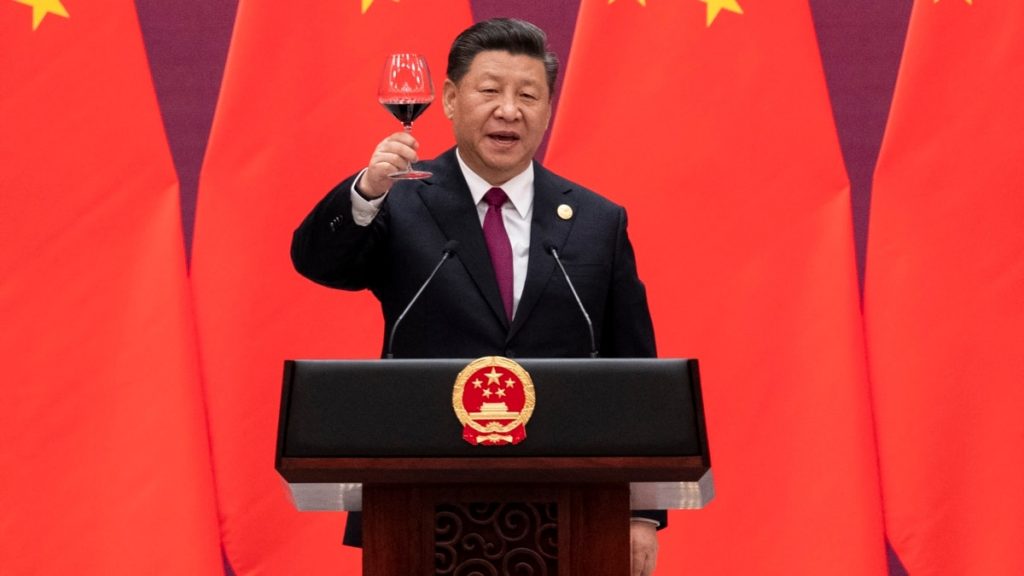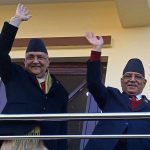By Ashis Biswas
Nepal has been taking so far a hard look at an impressive range of connectivity projects in the High Himalayas promised by its richer, powerful northern neighbour China, as part of its global Belt and Road Initiative (BRI) programme
Nepal’s new found caution about accepting major Chinese aid comes in the wake of Beijing’s apparently discriminatory treatment of South. Asian regional neighbours, Pakistan and Sri Lanka in the subtle exercise of settling mammoth old repayments. With new Prime Minister Prachanda just taking over, Nepal is expected to finalise its response to the Chinese programme for repayments of loans.
Some weeks ago, following a trip to Beijing by Pakistan Prime Minister Shehbaz Sharif, China promised a $9 billion dollar debt bailout package to Islamabad to ‘help stabilise the Pak economy.’ Devastating floods in Pakistan have led to a loss of around $30 billion. The country faces a financial crisis as it is, owing to massive inflation, rising fuel costs and other blows impacting its economy during the Ukraine war in the post Covid period. Repaying its huge debt of $26 billion-plus to China by mutually agreed instalments decided earlier, has suddenly turned into a nightmare.
However there is good news for Islamabad: according to statements made at the highest level in Islamabad, President Xi Jinping assured Mr Sharif that China would never let Pakistan down.
Beijing’s response to an essentially similar but much older request for debt repayment restructuring from Sri Lanka, which owes China over $7.4 billion (some say it is higher) has been apparently equivocal, but emphatically negative in terms of effect. Chinese authorities reaffirmed their intent to help the island overcome its mounting economic problems in the post Covid / Ukraine war situation. They welcomed efforts made by the IMF and other institutions to help Sri Lanka.
But Colombo’s desperate request for a restructuring of its debt repayment schedule — involving a proposed lowering of interest on the principal and an extension of deadline — had led to some ‘complications’ in the existing bilateral economic ties, which needed sorting urgently — or so said the Chinese.
First, offering such relief to Sri Lanka may encourage other 30/40 countries similarly indebted countries in Asia and Africa to ask for favours. Most developing countries were currently facing severe economic strains. It was not just a bilateral issue. Second, such decisions could not be taken in China without a comprehensive unity of approach among the political leadership, the authorities of the commercial banks and the common people: there are disquieting reports of local grumblings about Beijing’s ‘subsidies’ to the distressed people in the world at the expense of its own population, hit by recent lockdowns and closures !
Bottom line: no immediate relief for Sri Lanka.
In contrast, despite Islamabad’s enduring bonhomie with the West and the relief it has recently won from a relaxation of the FATF provisions, Beijing displays an exemplary patience in entertaining Pakistan’s never ending demands for more money and other help. The reason: special circumstances and bilateral strategic considerations that influence Chinese moves vis-a-vis Pakistan.
There is no denying that the BRI initiative has somehow become operative in south Asia largely because of the ongoing $60 billion worth CPEC corridor linking Xinjiang with the Gwadar port, in Pakistan. Progress remains slow, but It has been possible to start three projects around the Gwadar port area, despite persistent resistance from Baluchi militants.
Over time, the possibility of economic growth in Pakistan in the power generation and tourism sectors is along the 3000 kilometres long corridor — with China as the major partner! — cannot be ruled out. China already dictates the kind of security measures Pakistan must adopt to secure the CPEC highway as well as protect the Chinese officials and workers engaged with the project, to Islamabad. Beijing has been known to switch off the flow of funds in the running projects at will, according to critical Pak experts participating in the social media. In other words, China exercises almost total control over Pakistan
But in Sri Lanka Western agencies and institutions such as the IMF, the ADB and the Japan-led Paris Club have shown a determination not to let the country go Pakistan’s way by offering it critical financial help during its worst financial crisis — this, despite the long lease taken by China in 34 ports within the island already .
The present situation exposes Sri Lanka’s vulnerability. Unless China spells out its definite stand regarding Colombo’s request for debt repayment restructuring, which was first made in 2015 and later repeated in 2017, the IMF and other agencies cannot proceed on their plans to launch their proposed EPF $2.9 billion economic relief scheme for Sri Lanka, scheduled to begin in 2023.
Further, even the Paris Club of which India is a member, cannot implement its plans to help Sri Lanka until Beijing announces a decision.
No wonder, Nepalese authorities tracking regional developments and trends, have been in no rush to join the ambitious BRI schemes, although negotiations have been held since 2017. At a recent distinguished gathering of regional experts, former Ministers, officials and analysts in Kathmandu, the consensus was that Nepal must negotiate the terms of its participation in the BR initiative more thoroughly. There was no question of China getting Nepal into a debt trap as no commercial loans had been taken.
It would be better for Nepal to go in for limited securing grants-aided schemes instead of joining bigger projects. Nine such schemes had been considered in Kathmandu.
Participants representing Sri Lanka, Bangladesh and India, relating their experience/analysis of China-aided projects, invariably spoke of vigorous string-pulling, interference and other tactics used by China in the recipient countries. There were few takers who were convinced by Chinese assertions suggesting they had no political interests in advancing financial aid to developing countries.
In most countries that fell behind in their repayment schedules, infrastructural assets like ports and airports had been taken over by China, with Chinese companies running them. This had happened in around 100 out of 149 countries joined the BRI.
Bangladeshis, being inclined to accept Chinese help in some sectors of their economy, felt that the terms and interests charged by China in bilateral projects were often inconveniencing and on the high side.
As for India, it had refused to join the BRI from the beginning. The reason was primarily political, as China utilized parts of disputed territory in the POK region, ignoring repeated Indian protests, for implementing its CPEC corridor project. Recent developments over the years in connection with the progress of the BRI in South Asia and the experience of countries like Pakistan, Sri Lanka and Bangladesh had fully validated India’s concerns and reservations about an indisputable linkage between China’s long term strategic objectives and its so-called economic assistance for infrastructural development all over the world.
In the New Year, much would depend on how China handles the pending Sri Lankan request for restructuring its debt repayment schedule. (IPA Service)

 Prachanda’s Negotiation Power Makes Him Nepal Prime Minister
Prachanda’s Negotiation Power Makes Him Nepal Prime Minister 